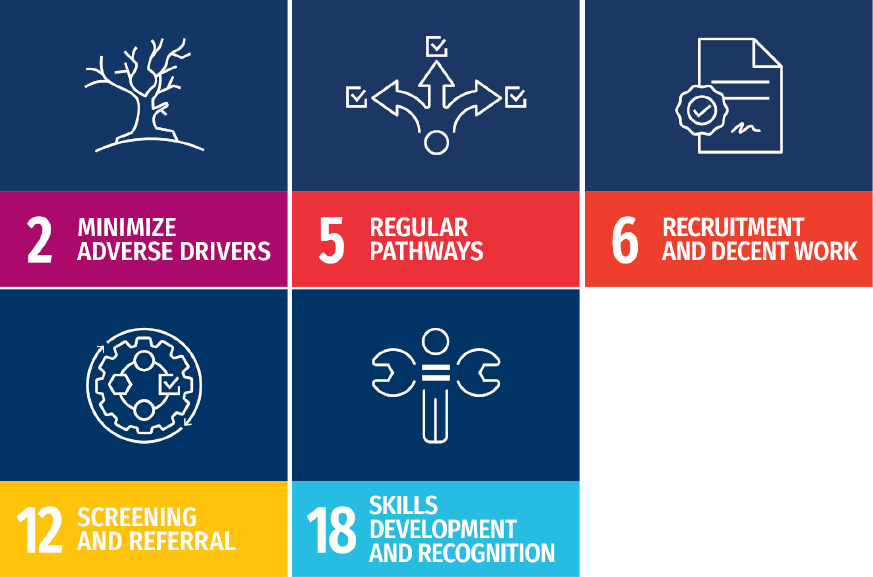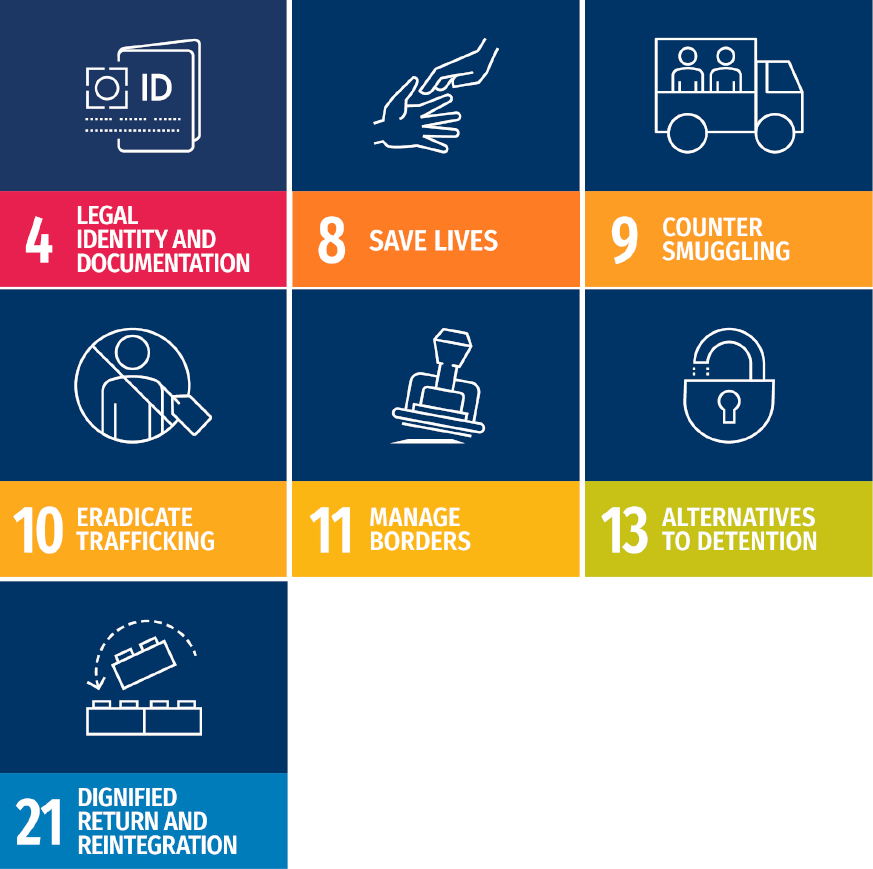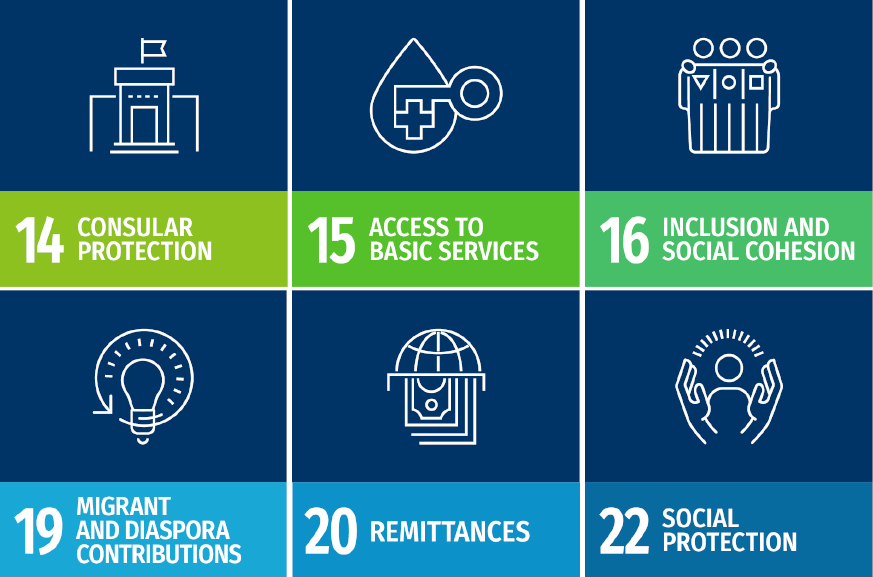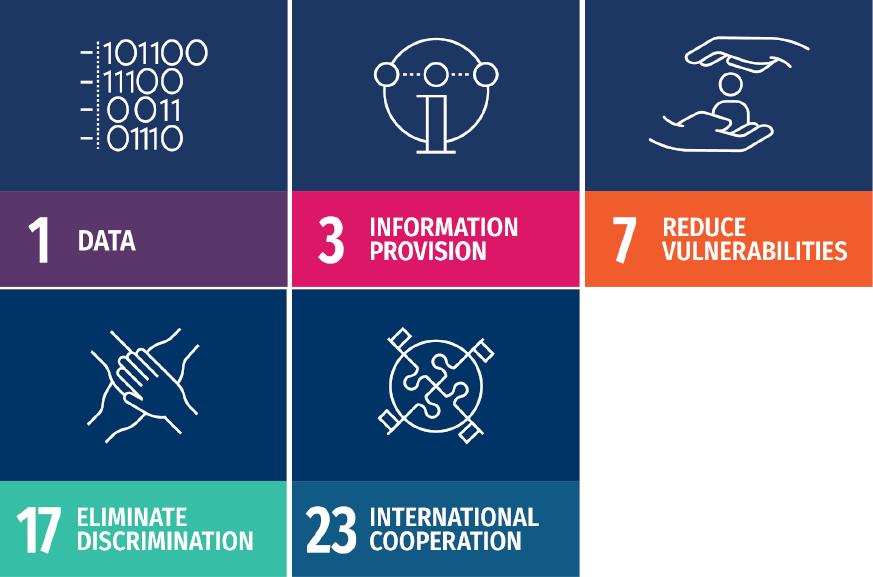
À propos du Forum
Introduction
Dans la résolution A/RES/73/195 de l'Assemblée générale, les États Membres ont convenu d'examiner les progrès réalisés aux niveaux local, national, régional et mondial dans la mise en œuvre du Pacte mondial pour des migrations sûres, ordonnées et régulières (GCM) dans le cadre de l'ONU par le biais d'une approche dirigée par les États et avec la participation de toutes les parties prenantes concernées.
Les États Membres ont en outre décidé que :
- Le Dialogue de haut niveau sur les migrations internationales et le développement, qui doit actuellement avoir lieu toutes les quatre sessions de l'Assemblée générale, sera réorienté et renommé « Forum d'examen des migrations internationales» ;
- Le Forum d'examen des migrations internationales servira de principale plate-forme mondiale intergouvernementale permettant aux États Membres de discuter et de partager les progrès de la mise en œuvre de tous les aspects du Pacte mondial, y compris en ce qui concerne l'Agenda 2030 pour le développement durable, et avec la participation de toutes les parties prenantes concernées.
Construire la coopération et les partenariats aux niveaux national, régional et mondial
Le Forum
Le Forum quadriennal d'examen des migrations internationales (Forum) se tiendra au plus haut niveau politique possible, y compris les chefs d'État ou de gouvernement.
Il est ouvert à la participation de tous les États membres de l'ONU et de tous les membres des institutions spécialisées qui ont le statut d'observateur auprès de l'Assemblée générale.
Format details
In resolution 73/326 (“Format and organizational aspects of the international migration review forums”), the General Assembly decides that the Forum will consist of:
- four interactive multi-stakeholder round-tables during the first day and the morning of the second day,
- followed by a policy debate in the afternoon of the second day, at the beginning of which the technical summaries of the round-tables will be presented;
- the plenary will be held during the third and the fourth days.
Roundtables
The four round tables will offer space for discussion covering all 23 objectives of the Global Compact with the aim of reviewing the progress made in its implementation at all levels, bearing in mind that the Global Compact is based on a set of cross-cutting and interdependent guiding principles.
Background notes
Please refer to the resources section for related background notes and documents.
GCM Objectives
All 23 objectives of the Global Compact shall be covered in the following indicative way:
Round table one
(2) Minimize adverse drivers, (5) Regular pathways, (6) Recruitment and decent work, (12) Screening and referral, and (18) Skills development and recognition

Round table two
(4) Legal identity and documentation, (8) Save lives, (9) Counter smuggling, (10) Eradicate trafficking, (11) Manage borders, (13) Alternatives to detention, and (21) Dignified return and reintegration

Round table three
(14) Consular protection, (15) Access to basic services, (16) Inclusion and social cohesion, (19) Migrant and diaspora contributions, (20) Remittances, and (22) Social protection

Round table four
(1) Data, (3) Information provision, (7) Reduce vulnerabilities, (17) Eliminate discrimination and (23) International cooperation

Policy debate
The Director General of the International Organization for Migration (IOM), as Coordinator of the Network, will facilitate the policy debate focusing on challenges in the implementation of the Global Compact, including the links with the 2030 Agenda for Sustainable Development, the capacity-building mechanism and contemporary and emerging issues related to migration.
The policy debate will also consider possible guidance for the United Nations system to strengthen its efforts in improving system-wide effectiveness and coherence and in supporting Member States in implementing the Global Compact, upon the request of Member States, based on their national policies and priorities.
